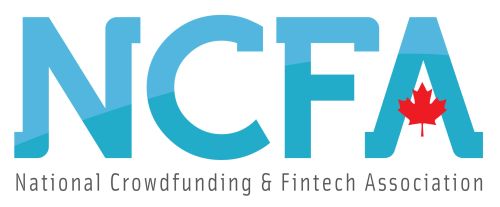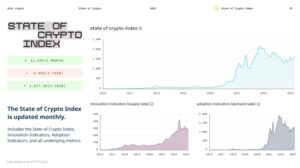Aug 25, 2023

 Image: Unsplash/Towfiqu barbhuiya
Image: Unsplash/Towfiqu barbhuiyaIn today's rapidly evolving digital world, financial fraud has emerged as one of the most significant threats facing individuals, businesses, and nations alike. With technological advancements come new opportunities for malicious actors to exploit systems and take advantage of unsuspecting victims. Canada, being a prominent global economy, is no stranger to these challenges. This article delves deep into the nuances of financial fraud in the Canadian context, exploring the multi-pronged strategies the nation employs to safeguard its financial landscape and protect its citizens.
What is Financial Fraud?
Before delving deeper into prevention strategies, it's crucial to understand what financial fraud entails. At its core, financial fraud refers to acts of deceit or omission aimed at financial gain, often at the expense of another party. It encompasses a wide array of activities, from credit card scams, Ponzi schemes, and mortgage fraud to more complex securities fraud and corporate misconduct. The common thread among these is the malicious intent to deceive in order to secure an unlawful financial advantage. Financial fraud doesn't just impact individual victims; its ramifications ripple through entire economies, affecting consumer confidence, investment prospects, and even national financial stability. Recognizing the signs of financial fraud is the first step in protecting oneself and the broader community from its damaging effects.
The Rise of the Legal Services Marketplace
A novel approach to addressing these concerns has been the rise of the legal services marketplace in Canada. These platforms connect businesses and individuals with legal professionals who specialize in various areas of law, including cybercrime and financial fraud. Through the legal services marketplace, victims of fraud can find expert advice and representation swiftly, ensuring that they can defend their rights and recover lost assets. These platforms have democratized access to legal expertise, creating a networked defense against financial criminals. Beyond individual representation, the marketplace model also facilitates knowledge sharing and the spread of best practices among legal professionals.
Cybercrime and Its Reach in Canada
The digital age has brought unprecedented convenience to consumers, but it has also given rise to cyber threats. Canada has become a prime target for cybercriminals. These individuals or organized groups exploit vulnerabilities in computer systems to commit crimes, often of a financial nature. Common examples include phishing attacks, ransomware, and bank fraud. According to a study, cybercrime costs the Canadian economy billions annually, emphasizing the need for robust countermeasures.
White-Collar Offenses
While cybercrime has a certain digital allure, it's essential not to underestimate white-collar offenses. These crimes, often perceived as less menacing because they lack the overt physical threat of traditional crimes, carry significant societal implications. Often rooted in positions of trust and power, white-collar criminals exploit their positions for illicit gains, manipulating markets, shareholders, and often entire communities. Typically committed within the confines of an office rather than a dark web forum, these offenses involve deceit, breaches of trust, or insider trading. Canada has witnessed several high-profile white-collar crime cases over the years, such as the infamous Bre-X Minerals scandal of the 1990s. These scandals, which sometimes affect global markets and shatter the lives of ordinary people who placed their trust in institutions and individuals, underscore the pressing need for a comprehensive legal framework to prevent and punish these offenses.
Legal Frameworks: The Backbone of Prevention
The Canadian government has taken considerable steps to fortify its legal frameworks in the fight against financial fraud. The Proceeds of Crime (Money Laundering) and Terrorist Financing Act (PCMLTFA), for instance, places obligations on financial institutions to detect and report suspicious activities. Moreover, the Digital Privacy Act has provisions that mandate companies to notify individuals of breaches that could result in a risk of significant harm. These laws, alongside a myriad of others, work in tandem to plug the gaps through which financial fraudsters operate.
Public Awareness
Laws and regulations, while vital, cannot function effectively without public awareness. Recognizing this, Canada has invested heavily in education and outreach programs aimed at equipping its citizens with the knowledge to detect and avoid fraud. The Canadian Anti-Fraud Centre (CAFC), a federal agency, provides resources, advice, and reporting mechanisms for those who believe they have been victims of fraud. Their campaigns have been instrumental in reducing the number of Canadians who fall prey to scams.
Tips for Safeguarding Against Financial Fraud
- Stay Informed: Regularly update yourself on the latest fraud schemes and tactics. Knowledge is power when it comes to prevention. In a world where fraudsters constantly innovate, staying a step ahead can be your best defense. Subscribing to updates from regulatory bodies or anti-fraud organizations can provide timely information on emerging threats.
- Secure Personal Information: Always be cautious when sharing personal and financial information. Use strong, unique passwords for online accounts. Identity theft often begins with unauthorized access to personal data. Ensuring that your details are not easily accessible and that your online accounts are fortified with robust passwords minimizes the risk of fraud.
- Verify Requests: Before transferring money or sharing sensitive data, verify the legitimacy of requests, especially those that seem urgent or threaten consequences. Scammers often create a sense of urgency to bypass logical reasoning. Always double-check with known contacts or organizations directly through verified methods before acting on any suspicious request.
- Regularly Monitor Accounts: Frequently check your bank and credit card accounts for unauthorized transactions. Swift detection can limit the damage. Early detection of unfamiliar transactions can help in both stopping ongoing unauthorized activities and in the process of recovering funds.
- Use Reliable Platforms: If seeking legal advice or representation related to financial fraud, consider platforms like the legal services marketplace, which connects users with experienced professionals. Leveraging vetted platforms ensures you're getting advice from credentialed experts, reducing the chances of misinformation or exploitation.
- Educate Friends and Family: Share your knowledge about potential scams and preventive measures with close ones. Protecting yourself also means protecting your community. By making sure those around you are informed, you reduce the likelihood of them becoming victims and indirectly safeguard yourself too.
- Install Security Software: Equip your devices with up-to-date antivirus and anti-malware software. These tools act as an additional line of defense against malicious software or links that may be used by fraudsters to gain unauthorized access.
- Avoid Public Wi-Fi for Transactions: Refrain from accessing bank accounts or making transactions when connected to public Wi-Fi networks. Public networks are less secure and can be easily exploited by cybercriminals to intercept data.
- Participate in Fraud Awareness Workshops: Many banks and community centers offer workshops or webinars on fraud prevention. Actively participating can provide hands-on knowledge and equip you with tools and techniques to recognize and prevent potential threats.
- Regularly Review Credit Reports: Obtain and review your credit report periodically to ensure there are no unauthorized accounts or activities. This can help identify any early signs of identity theft or unauthorized use of your financial credentials.
In the face of evolving threats, Canada's approach to combating financial fraud is multifaceted, combining robust legal frameworks with the innovative use of technology and public awareness campaigns.
See: Crypto Crime Falls But Ransomware Persists: 2023 Mid-Year Update
The rise of the legal services marketplace represents just one piece of the puzzle, demonstrating the nation's commitment to adapt and innovate in the quest for financial security. As cybercriminals and white-collar offenders continue to adapt, so too will Canada's strategies, ensuring that its financial landscape remains one of the safest globally.

 The National Crowdfunding & Fintech Association (NCFA Canada) is a financial innovation ecosystem that provides education, market intelligence, industry stewardship, networking and funding opportunities and services to thousands of community members and works closely with industry, government, partners and affiliates to create a vibrant and innovative fintech and funding industry in Canada. Decentralized and distributed, NCFA is engaged with global stakeholders and helps incubate projects and investment in fintech, alternative finance, crowdfunding, peer-to-peer finance, payments, digital assets and tokens, blockchain, cryptocurrency, regtech, and insurtech sectors. Join Canada's Fintech & Funding Community today FREE! Or become a contributing member and get perks. For more information, please visit: www.ncfacanada.org
The National Crowdfunding & Fintech Association (NCFA Canada) is a financial innovation ecosystem that provides education, market intelligence, industry stewardship, networking and funding opportunities and services to thousands of community members and works closely with industry, government, partners and affiliates to create a vibrant and innovative fintech and funding industry in Canada. Decentralized and distributed, NCFA is engaged with global stakeholders and helps incubate projects and investment in fintech, alternative finance, crowdfunding, peer-to-peer finance, payments, digital assets and tokens, blockchain, cryptocurrency, regtech, and insurtech sectors. Join Canada's Fintech & Funding Community today FREE! Or become a contributing member and get perks. For more information, please visit: www.ncfacanada.org Related Posts
- SEO Powered Content & PR Distribution. Get Amplified Today.
- PlatoData.Network Vertical Generative Ai. Empower Yourself. Access Here.
- PlatoAiStream. Web3 Intelligence. Knowledge Amplified. Access Here.
- PlatoESG. Automotive / EVs, Carbon, CleanTech, Energy, Environment, Solar, Waste Management. Access Here.
- PlatoHealth. Biotech and Clinical Trials Intelligence. Access Here.
- ChartPrime. Elevate your Trading Game with ChartPrime. Access Here.
- BlockOffsets. Modernizing Environmental Offset Ownership. Access Here.
- Source: https://ncfacanada.org/financial-fraud-prevention-legal-strategies-for-combatting-cybercrime-and-white-collar-offenses/
- :has
- :is
- :not
- :where
- 2018
- 2023
- 25
- 32
- a
- About
- access
- accessible
- accessing
- According
- Accounts
- Act
- acting
- actively
- activities
- actors
- acts
- adapt
- Additional
- addressing
- advancements
- ADvantage
- advice
- affect
- affecting
- affiliates
- against
- age
- agency
- ahead
- aimed
- alike
- allure
- alongside
- also
- alternative
- alternative finance
- always
- among
- an
- and
- Annually
- Another
- anti-fraud
- antivirus
- any
- approach
- ARE
- areas
- around
- Array
- article
- AS
- Assets
- At
- Attacks
- avoid
- awareness
- Backbone
- Bank
- bank accounts
- Banks
- BE
- because
- become
- becoming
- been
- before
- being
- believe
- BEST
- best practices
- Beyond
- billions
- blockchain
- bodies
- both
- breaches
- broader
- brought
- businesses
- but
- by
- cache
- Campaigns
- CAN
- Canada
- Canadian
- Canadians
- cannot
- card
- carry
- cases
- cautious
- Centers
- centre
- certain
- challenges
- chances
- check
- Citizens
- Close
- closely
- combining
- come
- comes
- commit
- commitment
- committed
- Common
- Communities
- community
- Companies
- complex
- comprehensive
- computer
- Concerns
- confidence
- Connect
- connected
- connects
- Consequences
- Consider
- considerable
- constantly
- consumer
- Consumers
- contacts
- context
- continue
- convenience
- Core
- Corporate
- Costs
- could
- create
- Creating
- Credentials
- credit
- credit card
- Crime
- Crimes
- Criminals
- Crowdfunding
- crucial
- crypto
- crypto crime
- cryptocurrency
- cyber
- cybercrime
- cybercriminals
- damage
- damaging
- Dark
- Dark Web
- data
- deceit
- decentralized
- deep
- deeper
- Defense
- democratized
- demonstrating
- details
- Detection
- Devices
- digital
- digital age
- Digital Assets
- digital privacy
- digital world
- directly
- distributed
- doesn
- Early
- easily
- economies
- economy
- ecosystem
- Education
- Education and outreach
- effectively
- effects
- emerged
- emerging
- emphasizing
- employs
- encompasses
- engaged
- ensure
- ensures
- ensuring
- Entire
- especially
- essential
- Ether (ETH)
- Even
- evolving
- examples
- experienced
- expert
- expertise
- experts
- Exploit
- exploitation
- exploited
- Exploring
- Face
- facilitates
- facing
- Fall
- Falls
- family
- Federal
- fight
- finance
- financial
- financial fraud
- financial information
- financial innovation
- Financial institutions
- financial security
- financial stability
- financing
- Find
- fintech
- First
- For
- Forum
- Framework
- frameworks
- fraud
- FRAUD PREVENTION
- fraudsters
- frequently
- friends
- from
- function
- funding
- funding opportunities
- funds
- Gain
- Gains
- gaps
- get
- getting
- given
- Global
- Global economy
- global markets
- Globally
- Government
- Group’s
- hacker
- hands-on
- harm
- Have
- heavily
- help
- helps
- High
- high-profile
- HTML
- HTTPS
- identify
- Identity
- identity theft
- if
- illicit
- image
- Impact
- implications
- in
- include
- Including
- indirectly
- individual
- individuals
- industry
- infamous
- information
- informed
- innovate
- Innovation
- innovative
- Insider
- insider trading
- instance
- institutions
- instrumental
- Insurtech
- Intelligence
- intent
- into
- invested
- investment
- involve
- IT
- ITS
- Jan
- jpg
- just
- just one
- Justice
- knowledge
- known
- Lack
- landscape
- latest
- Laundering
- Law
- Laws
- Legal
- legal framework
- legal services
- legitimacy
- less
- leveraging
- like
- likelihood
- LIMIT
- Line
- links
- Lives
- logical
- lost
- Making
- mandate
- manipulating
- many
- Market
- marketplace
- Markets
- max-width
- May..
- means
- measures
- mechanisms
- member
- Members
- methods
- minerals
- Misinformation
- model
- money
- Money Laundering
- Monitor
- more
- Moreover
- Mortgage
- most
- multifaceted
- myriad
- nation
- National
- Nations
- Nature
- Need
- networking
- networks
- New
- no
- novel
- number
- obligations
- obtain
- of
- offer
- Office
- often
- on
- ONE
- ones
- ongoing
- online
- operate
- opportunities
- or
- order
- ordinary
- organizations
- Organized
- Others
- outreach
- over
- participating
- partners
- party
- Passwords
- payments
- peer to peer
- People
- perceived
- perks
- persists
- personal
- personal data
- phishing
- phishing attacks
- physical
- piece
- Places
- Platforms
- plato
- Plato Data Intelligence
- PlatoData
- please
- plug
- ponzi
- Ponzi Schemes
- positions
- potential
- power
- practices
- pressing
- prevent
- Prevention
- Prime
- privacy
- proceeds
- process
- professionals
- Programs
- projects
- prominent
- prospects
- protect
- protecting
- provide
- provides
- public
- puzzle
- quest
- ransomware
- rapidly
- rather
- RE
- reach
- recognize
- recognizing
- Recover
- recovering
- reduce
- reducing
- refers
- Regtech
- regulations
- regulatory
- related
- reliable
- remains
- report
- Reporting
- Reports
- representation
- represents
- request
- requests
- Resources
- result
- review
- rights
- Ripple
- Rise
- Risk
- robust
- s
- safeguarding
- safest
- Scammers
- scams
- Scandal
- scandals
- schemes
- Sectors
- secure
- Securities
- securities fraud
- security
- Security software
- seeking
- seem
- sense
- Sense of Urgency
- sensitive
- Services
- several
- Share
- Shareholders
- sharing
- significant
- Signs
- So
- societal
- Software
- sometimes
- specialize
- spread
- Stability
- stakeholders
- Step
- Steps
- Stewardship
- stopping
- stranger
- strategies
- strong
- Study
- such
- sure
- suspicious
- SWIFT
- swiftly
- Systems
- T
- tactics
- Take
- taken
- Tandem
- Target
- techniques
- technological
- Technology
- than
- that
- The
- theft
- their
- Them
- There.
- These
- they
- this
- those
- thousands
- threat
- threaten
- threats
- Through
- to
- today
- Tokens
- too
- tools
- Trading
- traditional
- Transactions
- Transferring
- Trust
- typically
- understand
- unfamiliar
- unique
- unprecedented
- Unsplash
- up-to-date
- Update
- Updates
- urgency
- urgent
- use
- used
- users
- various
- verified
- verify
- vetted
- vibrant
- victims
- Visit
- vital
- Vulnerabilities
- web
- Webinars
- What
- when
- which
- while
- WHO
- Wi-fi
- wide
- will
- with
- within
- without
- witnessed
- Work
- works
- Workshops
- world
- years
- you
- Your
- yourself
- zephyrnet












